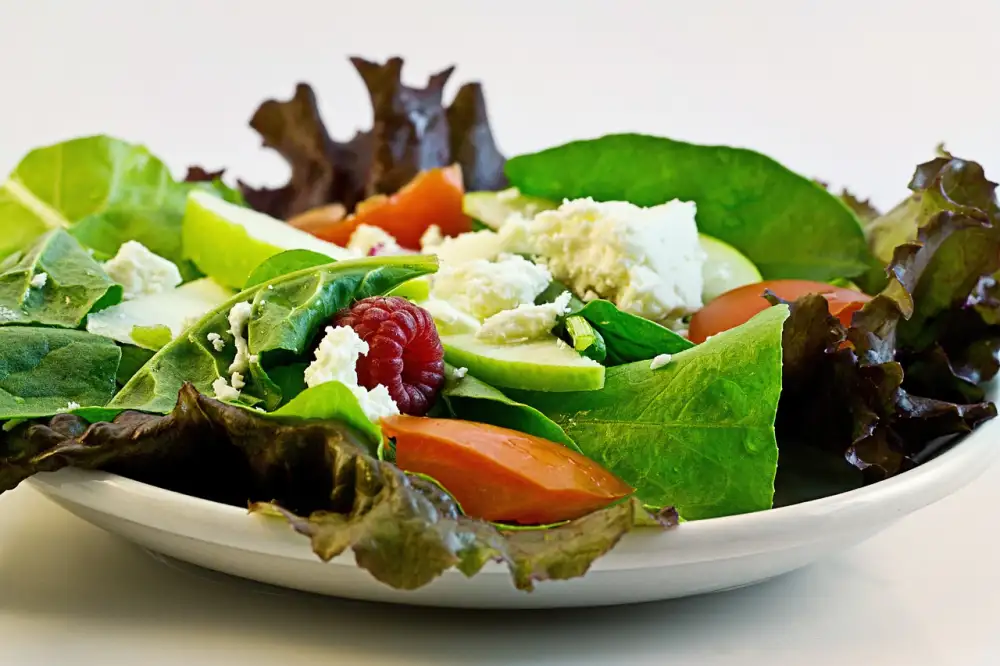Trimming Down with Tasty Delights: Discover Our Top Weight Loss Meals for Optimal Health

- Understanding the Importance of a Healthy Diet for Weight Loss
- Key Components of Effective Weight Loss Meals
- Incorporating Lean Protein Sources into Your Meals
- Including Fiber-Rich Foods to Promote Satiety and Digestive Health
- Choosing Nutrient-Dense Ingredients for Optimal Weight Loss
- Utilizing Healthy Cooking Methods to Reduce Calorie Intake
- Portion Control and Mindful Eating for Successful Weight Loss
- Meal Planning and Preparation Tips for Sustainable Weight Loss
- Delicious and Nutritious Weight Loss Meal Ideas
Embarking on a weight loss journey can be both exciting and challenging. One of the key factors in achieving successful weight loss is adopting a healthy diet. This involves making smart choices about the foods we eat and finding delicious ways to trim down. In this article, we will explore the art of creating weight loss meals that not only promote optimal health but also satisfy your taste buds. From understanding the importance of a healthy diet to incorporating nutrient-dense ingredients, we will guide you on your path to achieving your weight loss goals. So let's dive in and discover the top weight loss meals that will help you achieve optimal health!
Understanding the Importance of a Healthy Diet for Weight Loss
When it comes to shedding those extra pounds, a healthy diet plays a crucial role. It's not just about cutting calories; it's about nourishing your body with the right nutrients. A well-balanced diet provides the energy and nutrients needed for optimal functioning while promoting weight loss. By focusing on whole, unprocessed foods and limiting added sugars and unhealthy fats, you can create a sustainable eating plan that supports your weight loss goals. Remember, a healthy diet is not only about losing weight but also about improving overall health and well-being.
Key Components of Effective Weight Loss Meals
1. Balanced Macronutrients: Include a combination of lean protein, healthy fats, and complex carbohydrates to provide essential nutrients while keeping you feeling full.
2. Low-Calorie Density: Choose foods that are low in calories but high in volume, such as fruits and vegetables, to help you feel satisfied without consuming excessive calories.
3. High Nutrient Content: Opt for nutrient-dense foods like leafy greens, whole grains, and lean meats to ensure you're getting the necessary vitamins and minerals while reducing calorie intake.
4. Adequate Hydration: Drink plenty of water throughout the day to support digestion, boost metabolism, and curb appetite.
5. Limited Processed Foods: Minimize consumption of processed foods that are often high in added sugars, unhealthy fats, and empty calories.
6. Portion Control: Be mindful of portion sizes to avoid overeating and maintain a calorie deficit for weight loss.
7. Regular Meal Timing: Establish a consistent eating schedule to regulate hunger hormones and prevent unnecessary snacking.
8. Variety and Balance: Incorporate a wide range of colorful fruits, vegetables, whole grains, lean proteins, and healthy fats to ensure a well-rounded diet with essential nutrients.
9. Sustained Energy Levels: Include complex carbohydrates like quinoa or sweet potatoes to provide lasting energy throughout the day and prevent cravings.
10. Personalized Approach: Tailor your meals to suit your individual preferences and dietary needs for long-term adherence and success in achieving weight loss goals.
Incorporating Lean Protein Sources into Your Meals
Incorporating lean protein sources into your meals is essential for effective weight loss. Protein helps to build and repair tissues, boost metabolism, and keep you feeling full and satisfied. Opt for lean options such as skinless chicken breast, turkey, fish, tofu, or beans. These protein-rich foods are low in calories and fat but high in nutrients. Be creative with your meal preparation by adding grilled chicken to salads, making fish tacos, or enjoying a tofu stir-fry. By including lean proteins in your meals, you'll not only promote weight loss but also maintain muscle mass and support overall health.
Including Fiber-Rich Foods to Promote Satiety and Digestive Health
Including fiber-rich foods in your weight loss meals is crucial for promoting satiety and maintaining digestive health. Fiber adds bulk to your meals, making you feel fuller for longer periods of time. This can help prevent overeating and unnecessary snacking throughout the day. Additionally, fiber aids in digestion by keeping your bowel movements regular and preventing constipation. Incorporate foods such as whole grains, fruits, vegetables, and legumes into your meals to ensure an adequate intake of fiber. These foods not only provide essential nutrients but also contribute to a healthy weight loss journey.
Choosing Nutrient-Dense Ingredients for Optimal Weight Loss
When it comes to weight loss meals, choosing nutrient-dense ingredients is crucial for optimal results. Nutrient-dense foods are rich in vitamins, minerals, and other essential nutrients while being relatively low in calories. These ingredients not only support weight loss but also provide the body with the necessary fuel for overall health and well-being. Opt for fresh fruits and vegetables, whole grains, lean proteins, and healthy fats. Incorporating these nutrient powerhouses into your meals will not only help you shed pounds but also ensure that you are nourishing your body with the right nutrients it needs to thrive.
Utilizing Healthy Cooking Methods to Reduce Calorie Intake
Utilizing healthy cooking methods is essential for reducing calorie intake and promoting weight loss. Instead of frying foods, opt for baking, grilling, or steaming. These methods require little to no added fats, resulting in lower calorie content. Additionally, try using non-stick cookware to minimize the need for oil or butter. By choosing healthier cooking techniques, you can enjoy delicious meals while still achieving your weight loss goals.
Portion Control and Mindful Eating for Successful Weight Loss
Portion control and mindful eating are crucial for successful weight loss. It's important to be aware of the amount of food you consume and to listen to your body's hunger and fullness cues. Start by using smaller plates and bowls to visually trick your mind into thinking you're eating more. Chew your food slowly and savor each bite, allowing yourself to fully enjoy the flavors and textures. Avoid distractions while eating, such as watching TV or scrolling through your phone, as this can lead to mindless overeating. By practicing portion control and mindful eating, you can maintain a healthy weight and develop a positive relationship with food.
Meal Planning and Preparation Tips for Sustainable Weight Loss
Meal planning and preparation are essential for sustainable weight loss. Here are some tips to help you stay on track:
1. Plan your meals in advance: Take the time to create a weekly meal plan, including breakfast, lunch, dinner, and snacks. This will prevent impulsive food choices and ensure you have nutritious options readily available.
2. Include a variety of foods: Incorporate different fruits, vegetables, whole grains, lean proteins, and healthy fats into your meals. This will provide you with a wide range of nutrients and flavors.
3. Prep ingredients ahead of time: Wash, chop, and portion out ingredients in advance to save time during busy weekdays. This will make it easier to assemble meals quickly.
4. Cook in bulk: Prepare larger batches of soups, stews, or casseroles that can be divided into individual portions and frozen for later use. This way, you'll always have a healthy option on hand when you're short on time.
5. Use portion control tools: Invest in measuring cups or a food scale to accurately measure serving sizes. This will help you avoid overeating and maintain calorie control.
6. Pack your lunch: Prepare your own lunch instead of relying on takeout or cafeteria options. By doing so, you'll have better control over the ingredients and portion sizes.
7. Stay organized: Keep your pantry stocked with healthy staples like whole grains, canned beans, nuts, and seeds. This will make it easier to whip up quick and nutritious meals.
By following these meal planning and preparation tips, you'll be well-equipped to achieve sustainable weight loss while enjoying delicious and nourishing meals
Delicious and Nutritious Weight Loss Meal Ideas
1. Grilled Chicken Salad: Toss together grilled chicken breast, mixed greens, cherry tomatoes, cucumber slices, and a light vinaigrette dressing for a satisfying and low-calorie meal.
2. Veggie Stir-Fry: Sauté colorful vegetables like bell peppers, broccoli, and carrots in a small amount of olive oil. Add lean protein such as tofu or shrimp for a filling and flavorful dish.
3. Quinoa Stuffed Bell Peppers: Fill bell peppers with cooked quinoa mixed with diced vegetables and herbs. Bake until tender for a tasty and fiber-rich meal.
4. Salmon with Roasted Vegetables: Roast salmon fillets alongside an assortment of seasonal vegetables like asparagus, zucchini, and cherry tomatoes for a nutritious and heart-healthy dinner.
5. Turkey Lettuce Wraps: Replace traditional wraps with lettuce leaves filled with ground turkey cooked with aromatic spices. Top with crunchy veggies for a light yet satisfying meal.
6. Cauliflower Fried Rice: Pulse cauliflower in a food processor to create rice-like grains. Sauté it with mixed vegetables, scrambled eggs, and soy sauce for a low-carb alternative to fried rice.
7. Greek Yogurt Parfait: Layer non-fat Greek yogurt with fresh berries, granola, and a drizzle of honey for a protein-packed breakfast or snack that satisfies your sweet cravings.
These delicious weight loss meal ideas are not only nutritious but also packed with flavors that will keep you satisfied on your journey towards optimal health.
In conclusion, incorporating weight loss meals into your daily routine is a powerful step towards embracing a healthy lifestyle. By understanding the importance of a balanced diet, incorporating lean protein and fiber-rich foods, choosing nutrient-dense ingredients, utilizing healthy cooking methods, practicing portion control and mindful eating, and planning and preparing meals in advance, you can achieve sustainable weight loss. Remember, it's not just about shedding pounds but also nourishing your body with delicious and nutritious meals. So start your culinary adventure today and discover the artistry of food for optimal health!
Published: 12. 12. 2023
Category: Health



